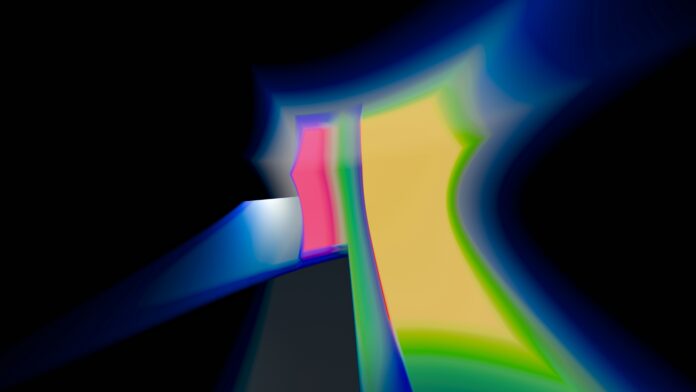Artificial Intelligence (AI) has begun to make an undeniable impact across a multitude of industries, and the fashion world is no exception. When it comes to fashion events, AI is transforming everything from event planning and marketing to audience engagement and the creation of virtual experiences. As fashion events become more intricate and global, AI’s ability to streamline processes and enhance experiences has made it a key tool for fashion event organizers and participants alike. Understanding how AI can influence fashion events is crucial for anyone in the industry, whether you’re an event organizer, designer, or even a guest. This article will explore the ten most important things you must be aware of about AI in fashion events, explaining its current and future impact, as well as how it’s changing the landscape of these high-profile occasions.
1. AI Helps Improve Fashion Event Planning and Organization
One of the first ways AI is making a mark in fashion events is through the optimization of planning and organization. Event organizers use AI-powered tools to streamline various aspects of event logistics. AI can predict the number of attendees, forecast consumer trends, and recommend the best venues for events based on historical data and past performances. Additionally, AI can help with the scheduling of showtimes, product launches, and even provide real-time traffic analysis to anticipate delays or crowd issues.
By using AI-driven tools to predict event outcomes and optimize schedules, organizers are able to focus more on the creative aspects of the event rather than logistical details. Furthermore, AI can help reduce human error and provide insights into what will make a fashion event more successful. Through predictive analytics, AI empowers organizers to make smarter decisions for an event that meets both guest and business expectations.
2. AI Is Enhancing Marketing Strategies for Fashion Events
AI is playing an increasingly critical role in the marketing of fashion events. In the past, marketing strategies for events relied on basic promotional efforts like email newsletters or traditional advertising. Today, AI enhances these strategies by enabling hyper-targeted advertising campaigns. By analyzing vast datasets on consumer behavior, AI can identify the specific interests, online habits, and preferences of potential attendees, allowing for highly personalized marketing campaigns that speak directly to their needs.
AI-driven tools like machine learning algorithms can analyze the success of past campaigns and continually improve marketing efforts by learning what works best for different audiences. Whether it’s through social media engagement, targeted email campaigns, or influencer partnerships, AI helps event organizers reach the right people with the right message, driving more traffic and engagement before, during, and after the event.
3. AI Enables Seamless Virtual Fashion Events
As the world shifts more toward digital platforms, AI is helping fashion events evolve into seamless virtual experiences. Virtual fashion shows, online exhibitions, and digital product launches are becoming more popular as technology improves. AI plays a central role in these digital experiences by creating realistic avatars, augmented reality (AR) fashion shows, and interactive features that allow attendees to participate remotely.
For instance, AI-powered software can simulate fashion designs on digital avatars or 3D models, allowing online attendees to experience the show in a highly immersive and interactive way. These virtual events can also be enhanced with AI-driven chatbots that engage users, answer questions, and offer personalized recommendations. The rise of virtual fashion events powered by AI provides brands with global reach, greater accessibility, and more engagement with a broader audience.
4. AI Is Transforming Attendee Experience at Fashion Events
AI is enhancing the attendee experience at fashion events by offering personalized services and interactions. Through facial recognition and AI-powered apps, fashion event organizers can offer seamless check-ins, providing attendees with immediate access to the event. AI systems can be used to track attendees’ preferences, ensuring they are guided to the shows or presentations most relevant to them based on past behavior and preferences.
Moreover, AI can assist in personalized recommendations for fashion-related products or experiences, providing attendees with curated content and experiences tailored to their unique tastes. By integrating AI, fashion events can create a more engaging and memorable experience for attendees, ensuring they remain engaged throughout the event and beyond.
5. AI Drives Data-Driven Insights for Fashion Events
Data analytics is one of AI’s strongest suits, and it’s being used to provide fashion event organizers with invaluable insights. AI-powered tools can collect and analyze data from various sources, including social media, attendee interactions, and online event platforms, to assess the success of the event in real-time. This data can be used to gauge audience sentiment, measure engagement, and even determine which elements of the event were most popular.
This real-time data provides event organizers with actionable insights, allowing them to adjust the event dynamically to maximize engagement. For example, if an AI algorithm detects that a particular fashion show or designer is receiving high levels of interest on social media, the organizers can adjust their schedule or allocate additional resources to highlight that show. AI-driven data analysis enables event planners to make decisions based on facts, improving both the attendee experience and the event’s ROI.
6. AI Facilitates Streamlined Event Registration and Access Control
AI is significantly enhancing the registration process at fashion events, allowing for smooth and efficient entry. Traditional methods of event registration often require long queues and manual check-ins, but with AI integration, fashion events can leverage facial recognition or biometric scanning for quick, contactless entry. These methods allow guests to enter events without the need for physical tickets or lengthy verification processes.
Moreover, AI-driven access control systems help to ensure that only authorized attendees are allowed into specific areas, such as VIP sections or backstage areas. By enhancing both security and efficiency, AI improves the overall flow of the event and reduces potential disruptions, ensuring that the focus remains on the fashion experience itself.
7. AI Enhances Real-Time Audience Engagement and Interaction
During fashion events, it’s important to keep the audience engaged in real-time, whether they are attending in person or virtually. AI is changing the way attendees interact with the event by facilitating live polls, Q&A sessions, and interactive voting. This allows attendees to participate directly in the event, whether by voting on designs, asking questions during a panel discussion, or even sharing their thoughts on social media platforms.
For virtual events, AI chatbots can interact with attendees, providing real-time updates on showtimes, venue changes, and event details. Through AI, event organizers can ensure that the virtual audience remains engaged, while AI-driven sentiment analysis tools help gauge how the audience is reacting to different segments of the event. These tools provide instant feedback, allowing for dynamic adjustments to improve engagement.
8. AI-Powered Fashion Trend Forecasting for Future Events
Fashion trend forecasting is a crucial element of fashion events, as designers and brands look to anticipate what styles, colors, and themes will dominate the next season. AI plays a major role in this area by processing large amounts of data from fashion shows, social media platforms, online retail stores, and historical fashion trends. AI algorithms analyze this data to predict upcoming trends, enabling designers and event organizers to stay ahead of the curve.
By incorporating AI into fashion trend forecasting, organizers can curate events that reflect the most relevant and current trends in the industry. This ensures that fashion events remain fresh, innovative, and reflective of consumer desires, leading to a higher level of anticipation and excitement among both attendees and participants.
9. AI Assists with Sustainability Efforts in Fashion Events
Sustainability has become a focal point in the fashion industry, and AI is helping fashion events become more sustainable in multiple ways. AI can optimize resource usage, reducing waste in fashion event setups by calculating the amount of materials needed, energy consumption, and transportation logistics. AI tools can also analyze the environmental impact of the event and suggest improvements for reducing carbon footprints, such as using sustainable materials or minimizing event-related emissions.
Moreover, AI is aiding sustainability in fashion by helping brands and designers produce clothing with minimal environmental impact, which can be showcased at fashion events. AI helps identify sustainable materials and production techniques, allowing fashion brands to present eco-conscious collections that align with the growing demand for sustainable fashion.
10. AI Enhances Fashion Event Content Creation and Distribution
Fashion events generate a tremendous amount of content, including photographs, videos, interviews, and live streams. AI tools are now being used to automatically capture, edit, and distribute this content to the relevant audiences. With AI-based video editing tools, organizers can quickly produce highlight reels or even create customized content for different audience segments based on their preferences.
Furthermore, AI can track how content is being consumed across social media platforms and websites, allowing event organizers to measure its success and adjust their marketing strategies accordingly. By automating content creation and distribution, AI not only saves time and resources but also ensures that the right content reaches the right audience at the right time.
Conclusion
AI is rapidly transforming the fashion industry, and its role in fashion events is becoming more crucial every day. From improving event planning and marketing to enhancing audience engagement and sustainability efforts, AI is revolutionizing how fashion events are organized, executed, and experienced. By understanding how AI will impact fashion events, organizers and participants can harness this powerful technology to create more dynamic, engaging, and innovative experiences. As AI continues to evolve, its influence on fashion events will only increase, shaping the future of this exciting industry.

















